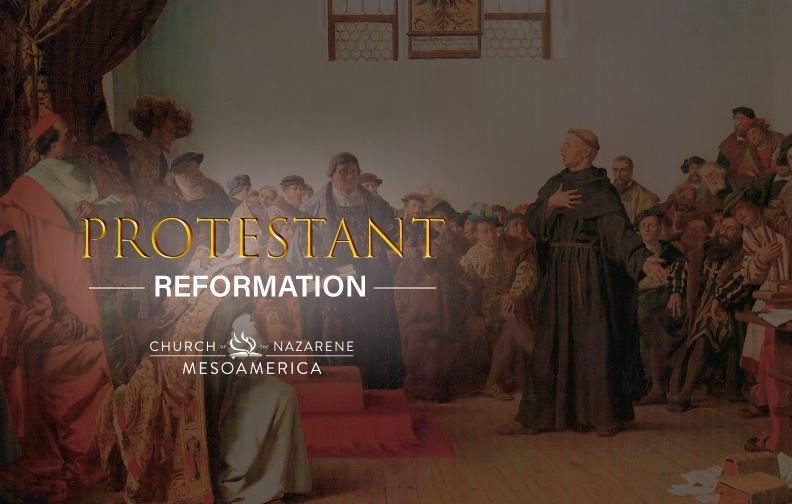Today we celebrate a transcendental date in the history of humanity: the Day of the Protestant Reformation. On the afternoon of October 31, 1517, an Augustine monk named Martin Luther nailed his 95 Theses (or affirmations) to the door of the Wittenberg Cathedral. The document called for debate over the practices of the church that he considered incorrect. This act produced an effect that Luther himself could never have imagined, expected or desired. It was the spark that prompted a series of events that led to the formation of a movement that ultimately separated from the official church. It is a movement that today that includes 800 million people around that world.
It is unlikely that you will read anything about the Reformation in today’s morning papers. Maybe it won’t appear in a popular magazine or in the headlines of your favorite news channel. For the most part, mention of this event is reserved for evangelical seminary classrooms and maybe a handful of church services. Why is that?
Maybe we live in an age that does not value history. Who cares about what happened 500 years ago in Europe? Hardly anyone. Today, we hardly remember what happened last week. We live for today—for this moment. Perhaps another reason is that the Day of the Reformation doesn’t make money. Halloween does.
The Reformation was not meant to create a new gospel, but to return to the gospel of the First Century. The Reformation was an effort to return the medieval church back to the theology and practices based in the New Testament.
There were not many doctrines of the Reformation, but what they had was fundamental. They are known as the Five Solas, sola being Latin for “only” or “alone.”
1. Scripture alone (sola Scriptura) – the Bible as the source of Authority
2. Christ alone (solus Christus) – Salvation is only found in Jesus
3. Grace alone (sola gratia) – Salvation is a gift from God
4. Faith alone (sola fide) – Salvation comes only through faith
5. God’s glory alone (soli Deo gloria) – the salvation we receive is to glorify God
As evangelical Christians and members of the Church of the Nazarene, we are sons and daughters of the Reformation. For that reason we must know well these principles that transcend time and culture. But above all, we must live them!
Written by Rev. Ruben Fernandez
Coordinator of Education and Pastoral Development for the Church of the Nazarene
Mesoamerica Region






